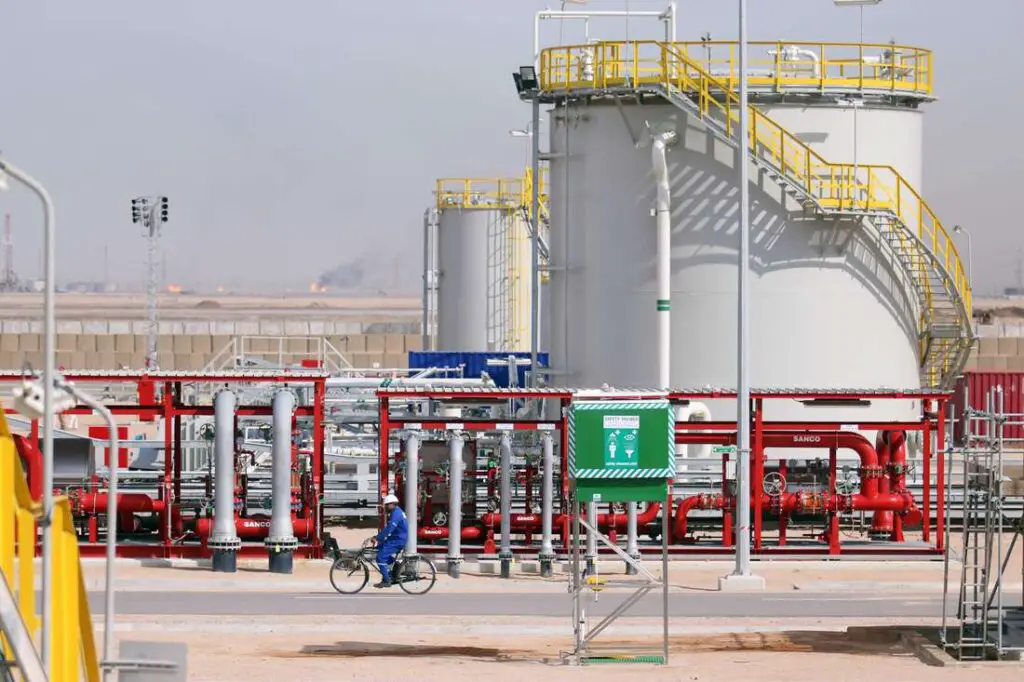- UNOC’s Work Plan is facing a reality check as the institution seeks to secure project financing for its key ventures in the midstream and downstream sectors
- UNOC ventured into oil exploration in the Kasuruban block, working with a joint venture partner that brings technical know-how and financial muscle to the project
- Ministry of Finance announced UNOC used EACOP holding funds to buy 8M litres of fuel for Jinja Storage Terminal due to cash crunch
Uganda National Oil Company (UNOC) is facing a reality check as it seeks to secure project financing for its key ventures in the midstream and downstream sectors. Despite facing some obstacles, UNOC remains committed to its ambitious work plan and is continuing to pursue new opportunities.
UNOC is wholly owned by the ministries of Energy and Finance, with a 51 per cent and 49 per cent stake, respectively. The company’s mandate is to manage Uganda’s commercial interests in the oil and gas sector, including the marketing of the country’s share of petroleum and developing expertise in the oil and gas industry.
Earlier this year, UNOC ventured into oil exploration in the Kasuruban block, working with a joint venture partner that brings technical know-how and financial muscle to the project.
However, for its ongoing ventures in the midstream and downstream, UNOC requires a minimum of US$200 million over the next two financial years leading up to the commencement of commercial oil production.
UNOC’s investment
The company holds a 15 per cent stake in upstream production in each of the nine licenses for the oil fields operated by China’s CNOOC and French TotalEnergies EP in Nwoya, Buliisa, Hoima, and Kikuube districts. Currently, the two oil companies bear UNOC’s 15 per cent investment.
In the midstream sector, UNOC holds Uganda’s 15 per cent stake in the East African Crude Oil Pipeline (EACOP), which will transport Uganda’s waxy crude oil from Hoima to Tanzania’s Indian Ocean Port en route to the international market.
Additionally, the company, through its subsidiary Uganda Refinery Holding Company Limited (URHC), holds Uganda’s 40 per cent stake in the long-shot 60,000 barrels per day refinery.
This US$4.5 billion greenfield refinery is one of President Museveni’s pet projects, and UNOC officials have described its internal rate of return as “extremely attractive,” given the US$1.7 billion Uganda spends annually on petroleum imports and the potential regional market.
UNOC’s Work Plan Challenges
While appearing before the Parliamentary Finance Committee last week to defend UNOC’s budget, Ministry of Finance officials revealed that US$52.6 million has been provisioned as UNOC’s first equity in the project during the 2023/24 financial year.
The refinery’s design, finance, and construct tender was awarded to the Albertine Graben Energy Consortium, a special purpose vehicle of American and Italian firms. The project is expected to be financed in a public-private partnership arrangement of a 60:40 ratio. (https://www.greenbot.com/)
Energy Minister Ruth Nankabirwa and UNOC executives have previously claimed that the Final Investment Decision (FID) for the project will be closed in June 2023.
However, the Ministry of Finance told the committee that negotiations on debt financing haven’t started yet. As a result, the refinery FID cannot happen in June 2023 because several key project agreements have yet to be negotiated and closed.
The Ministry of Finance officials revealed that the negotiation of the Crude Supply Agreement is expected to be completed in the last quarter of this year, while the negotiation of the Implementation Agreement and Shareholders Agreement, respectively, is expected to be completed by June 2023.
The incorporation of the Refinery Company Schedule is due for completion later this year, while the Environmental Social and Impact Assessment study is said to be at 97 per cent.
Industry sources have told the Daily Monitor recently that the Albertine Graben Energy Consortium had failed to raise US$8 million demanded by the National Environmental Management Authority for the attendant Environmental Social and Impact Assessment review processes.
Separately, UNOC manages the Kabaale Industrial Park, which is contiguous of the 29 square kilometres of land acquired in 2013 to accommodate, among others, the pumping terminal for EACOP.
Cash Shortage
Due to a cash crunch, the Ministry of Finance has announced that UNOC recently utilized funds from its holding account for EACOP to purchase eight million litres of fuel to replenish the Jinja Storage Terminal.
This was done to prepare for the potential impact on Uganda’s fuel supply during the period when Kenya was conducting its national elections. The source of the funds was reimbursement costs incurred by UNOC for EACOP promotional activities, as well as foreign exchange gains generated from the company’s equity disbursements from the Ministry of Finance.
Read: UNOC to invest $840m in oil and gas sector
